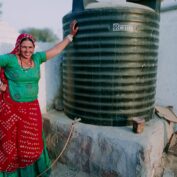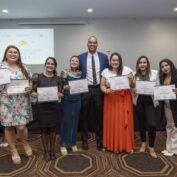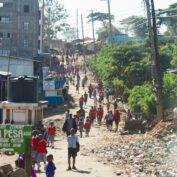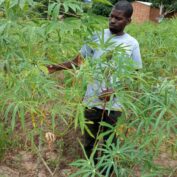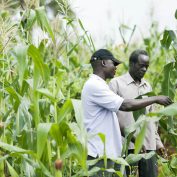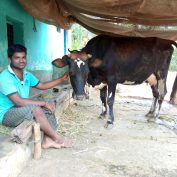Cutting Poverty Through Hairdressing in Uganda
Not long ago, Carolyn Owonkunda struggled to earn a living selling fried fish on the side of the road. After participating in a TechnoServe program, she was able to start her own hairdressing business and has increased her daily income fourfold, leaving her with more money to support her children and invest back into her business.




